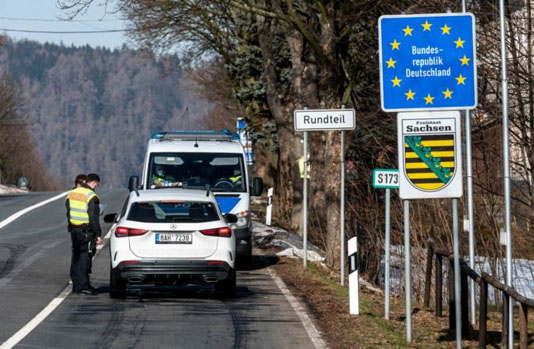BERLIN, March 30, 2021 (BSS/AFP) – Germany on Tuesday said it would step
up random controls at its land borders to ensure people are carrying a
negative coronavirus test upon arrival, amid concern that Easter holiday
trips could worsen the country’s third Covid wave.
Interior Minister Horst Seehofer said he has asked Germany’s federal
police to “intensify” the checks for the next “eight to 14 days”.
“Regardless where you’re arriving from, from Poland, France, or Denmark,
everyone should expect to be checked, especially with regard to producing a
negative test,” Seehofer told reporters.
The checks would occur in a 30-kilometre (19-mile) zone on German
territory after vehicles have already crossed from neighbouring nations,
Seehofer said, meaning nobody will be sent back if they don’t comply.
But police can impose fines on anyone who fails to show a negative test or
did not complete an online registration form before entry.
Anyone coming from a “high-risk” area such as France must also quarantine
upon arrival.
The only systematic border checks, where each car is stopped and can be
denied entry, are taking place at Germany’s frontier with the hard-hit Czech
Republic.
Seehofer announced that the strict checks would be extended for another 14
days given the Czech Republic’s high infection rate and the prevalence of
virus variants.
But Germany will no longer systematically stop each vehicle coming from
Austria’s Tyrol region, he added, saying the pandemic situation in Tyrol “has
significantly improved”.
Also from Tuesday, anyone arriving in Germany by plane must show a
negative test before boarding, regardless of whether they are coming from a
risk area or not.
The tougher measures come as Germany struggles to slow a rise in
coronavirus infections, fuelled by new, more contagious virus strains with
experts warning that the vaccination pace remains too slow to break a third
wave of the pandemic.
Government officials have repeatedly urged Germans to stay home over the
Easter break and expressed concerns over Germans holidaying in the Spanish
island of Mallorca.



